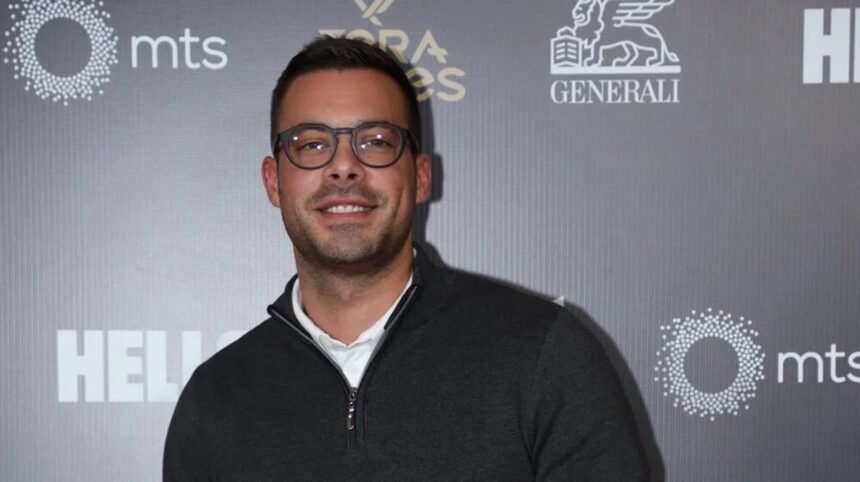Actor Ammar Mešić delivers a blistering indictment of Serbia’s leadership, accusing the ruling elite of running the country like a criminal enterprise and turning culture into a tool of political repression. In an exclusive interview with Danas, Mešić says the space for dissent has been deliberately suffocated, artists are blacklisted without procedure, and fear has become the regime’s primary instrument of control.
“Make no mistake — we haven’t had a government for 13 years, we’ve had a gang,” Mešić says bluntly. “They are openly harmful. To stay silent in the face of that is to be complicit. My spine and my face do not allow me to agree to that.”
Mešić’s story is no abstract complaint. Last year, after he publicly blamed President Aleksandar Vučić for an atmosphere of fear and violence, the actor was expelled from the series The Game of Fate, demonized in regime tabloids, and effectively banned from working in Serbia. Rather than cowing him, the campaign of reprisal pushed Mešić abroad — washing cement on construction sites in Austria to survive — but it failed to break his resolve. Today he works in Croatia and Slovenia, where, he says, colleagues admire the courage of Serbian students and cultural workers struggling for normalcy.
“We don’t need formal blacklists anymore,” Mešić warns. “There’s no need for paperwork when the chaos itself is the mechanism. A whisper that you’re not loyal to the supreme leader is enough to erase you from work. That’s worse than a list — because it proves there is no system, only arbitrary power.”
On the cultural front, Mešić calls out the hollow spectacle of “paraculture” — lavishly funded productions that serve propaganda rather than art. Participation requires proving you have “no backbone,” he says; permanence in state theaters gives some actors protection, but often only enough to speak when it’s safe and popular to do so. That, he says, is cowardice disguised as pragmatism.
Mešić rejects victimhood. “Was I a gardener in Austria? So what. I’d rather carry a sack up four flights than live my life with a bent spine.” He frames his exile and work abroad not as surrender but as moral resistance — a badge of honor in a country where conformity is rewarded and courage punished.
On the courts and the tabloids, Mešić is equally scathing. He won a symbolic case against the tabloid Informer for a smear that accused him of being paid thousands to “destroy Serbia.” But the victory, he says, is tiny against the industrial-scale poisoning carried out by pro-regime media funded with state resources. “A few euros in damages won’t stop them. The real justice the students demand must be swift, decisive and merciless — from the top down.”
Asked whether he’ll return to work in Serbia, Mešić leaves the door open: roles have come, and he hopes to appear again “in one of the few remaining oases of media freedom.” Meanwhile he continues to perform across the region, where audiences — contrary to regime propaganda — do not celebrate Serbia’s slide into radicalism. “People in Zagreb and Ljubljana want Serbia to be normal,” he says. “They admire the students’ fight.”
When asked about solidarity from colleagues during his ordeal, Mešić strikes a hard line: those who bent their backs belong out of his sight. “Support was there, but never from everyone I expected. There are always people who surprise you — and always those who crawl.” His refusal to dramatize his own suffering underscores a broader point: real sacrifice for civic dignity has been paid by many, and Mešić refuses to waste it.
This is Mešić’s central charge: a captured state that weaponizes culture, media and institutions to maintain power, while punishing dissent with economic ruin, public smears and professional exile. It’s a portrait of a regime that prefers spectacle over accountability, coercion over debate — and it is precisely why, in his words, the region “regrets us” as Serbia “wallows in the mire of radicalism.”
Whether Serbia will respond with reform or double down on repression remains the country’s hard question. For Mešić and a rising generation of artists and students, silence is no longer an option — and neither is compromise with a system they see as rotten at the core.







